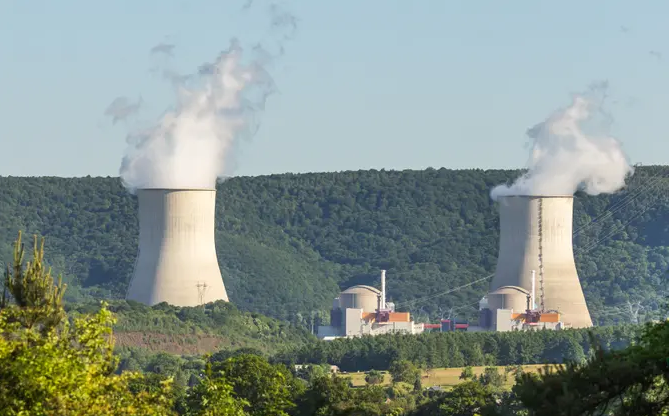Estonia did not join a joint statement made by nine EU countries in support of France, in which the countries backed the use of nuclear energy as a reliable energy source to secure a low-carbon future.The statement was signed by the Czech Republic, Bulgaria, Croatia, Finland, Hungary, Poland, Romania, Slovakia and Slovenia, portal EurActiv.com reported on Tuesday. The portal points out that the Czech Republic's signature is important as the country will take over the rotating EU presidency after France in the second half of 2022.

In the joint statement, the countries express support for French president Emmanuel Macron, after he unveiled a €30 billion investment plan aimed at reindustrializing the country after the coronavirus crisis, as reported by Politico. The package will pour public money into the nuclear industry and a variety of other sectors ranging from electric cars to agriculture, from space to biotechnology, and into cultural content such as TV programs.
Although the Estonian Ministry of the Environment considered joining the statement to be a premature move, they emphasized that Estonia does not rule out the use of nuclear energy. "Since Estonia is still shaping its position, joining the statement would have been premature," ministry radiation adviser Reelika Runnel told ERR.
"Although we have not taken the energy source to use ourselves, we will not stop other countries from developing it and we are also not ruling it out as a suitable option to achieve climate goals. We find that all low-carbon energy production methods should be considered. This is why a nuclear energy work group has started work on the government's approval, aiming to analyze the possible use of nuclear energy in Estonia," the adviser added.
Kalev Kallemets, head of Fermi Energia, an Estonian company working on nuclear energy development, told ERR that the company welcomes Macron's promise to take a leadership role in developing nuclear energy. "If France has the support of nine other countries, it carries significant weight in Europe. France will take its logical place in Europe," Kallemets said.
He added that it is not possible to achieve carbon-free electrification year-round in Estonia as a northern country and that carbon-free nuclear energy is also not possible. "If some countries start to obstruct the realization of carbon-free nuclear energy, there will be conflicts," Kallemets said, pointing to other EU countries, such as Germany, which aim to obstruct the use of nuclear energy.
"Estonia and Lithuania already consume nuclear energy produced in Finland and Sweden, our rooms would be dark without it. We will need this energy in the future and it needs investments. We cannot go forward on the coattails of the past forever," Kallemets said.
The joint statement states that nuclear energy should be used to reduce Europe's energy dependence on third countries as fast as possible. This is even more actual during the rise in energy prices worldwide.
Therefore, the countries say that it is "absolutely necessary" that nuclear power is included in the European taxonomy framework by the end of 2021.
"All scientific assessments requested by the European Commission on the environmental impacts of nuclear energy come to the same conclusion: there is no science-based evidence that nuclear power is less climate-friendly than any of the energy sources included in the taxonomy," the statement reads.